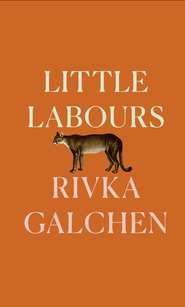По всем вопросам обращайтесь на: info@litportal.ru
(©) 2003-2024.
✖
Rushing to Paradise
Настройки чтения
Размер шрифта
Высота строк
Поля
‘You’re impressed, Neil. But that’s not what I meant. I want everyone to see how serious we are.’
‘You are serious.’ Tempted to tease, he added: ‘I’ll film you from your best side.’
‘Have I got a best side? What a dreadful thought.’
Neil filmed her as she followed Kimo through the forest, feet sinking into the spongy ground. The Hawaiian slashed at the ferns, exposing the rusty steel sections of a small-gauge railway. Everywhere lay the debris of Saint-Esprit’s earlier occupations. Wooden huts leaned on their worm-riddled stilts, roofs open to the sky, hibiscus and morning glory flowering between the floorboards. A prayer-shack of corrugated iron stood on a headland above the lagoon, surrounded by the graves of an overgrown cemetery laid out by the Catholic missionaries. The forest had long since reclaimed the modest farm plots. Breadfruit trees, jack and eucalyptus crowded together among the taro plants, wild yams and sweet potatoes.
Imposed on this smothered realm was the refuse left by the French engineers, a moraine of abandoned military equipment. Kimo rested on an empty fuel tank beside the railway line, hacking at the lianas that snared it to the ground. Cloudy wine bottles lay in a wooden crate at his feet, surrounded by truck tyres and coils of telephone wire. A second camera-tower stood among the deep ferns, its window-slits staring at nothing.
They crossed a drainage ditch and stepped through the screen of palms. The airstrip swept past them, freshly surfaced with pulverized coral, its eerie geometry forming the outlines of an immense white altar among the trees. A camouflaged radio-cabin stood in the undergrowth fifty yards from them, aerials pointing to the empty sky. At its southern limit the airstrip ended in a barrier of dunes, where an army bulldozer sat with its scoop sunk in the sand.
Swinging the machete in his hand, Kimo walked to the bulldozer and tapped its metal tracks. An empty beer can rested on the driver’s seat. Head raised, he stood stiffly in the strong wind as the sunlight flashed on the machete’s blade. Lost in some reverie of his Hawaiian kingdom, he at last turned and gave a dismissive wave, like a travel courier warning a party of visitors from an uninteresting site.
‘What is it, Kimo?’ Dr Barbara called. ‘Can you see anything?’
‘Albatross, doctor … just albatross.’
‘Albatross …?’ Dr Barbara seized Neil’s arm and hurried him across the runway. ‘Neil, the birds are still here! Get the camera ready.’
They reached the dunes and clambered up the slopes of churned sand, sinking to their knees in the black ash. Dr Barbara shielded her eyes from the wind and peered at the sky as Kimo strode down the beach to the headland beside the prayer-shack.
‘Kimo! Where are the albatross? I can’t see a single one.’
‘There are plenty, doctor.’ Kimo gestured in an offhand way at the hillocks of sand and beach-grass. ‘Every albatross you need.’
‘Kimo …?’
‘Over there.’
‘Dr Barbara …’ Neil lowered the camera, unsure whether to film her when she was caught off-guard. ‘They’re all around us. They’re not in the sky any more …’
A colony of albatross had nested among the hillocks, taking advantage of the wind that rose from the surface of the dunes. Their nests were little more than hollows in the sand, crudely lined with feathers and grass, but every one of them had been kicked apart. The heel-marks of heavy boots had stamped themselves into the rain-sodden ash. Fragments of broken shell trembled in the cool air, blurs of down quivering on their serrated edges. Dead chicks lay in the crushed grass, smeared with the yellow stomach oil that their parents had vented over them in their panic. Wings outstretched, dozens of the great birds rested at the water’s edge, clubbed to death as they tried to escape. The ruffled plumage glared against the black sand like ice-white blossoms thrown into a refuse pit.
‘Thirty-eight … nine …’
Kimo wandered among them, a stiff smile masking his face. The machete hung loosely in his hand, as if he were tired after cutting down the sky. Listening to his flat voice, Neil realized that the Hawaiian was counting the dead birds, and that in some way a finite number of fatalities would diminish the atrocity committed against the creatures.
‘Kimo …. why are they killing the birds?’
‘They need to extend the runway.’ Kimo spoke matter-of-factly. ‘On Midway the Air Force killed thirty thousand goonies last year. They get into the jet intakes.’
‘What about the French soldiers?’ Neil scanned the empty runway, as white as the feathers of the albatross. ‘They must be here somewhere.’
‘Maybe they’re bored. Killing is slow work …’
Unable to console the Hawaiian, Neil returned to Dr Barbara. She stood among the dead birds, hair floating from her forehead like threatening vapour above a volcano. As the wind stirred the plumage of the dead birds the beach seemed to shiver under her gaze. But her mouth was set in a curious grimace that was almost a smirk of satisfaction.
‘Neil, I want the world to see this. Make sure you include every bird. Especially the chicks.’
‘There are too many, doctor.’ Reluctantly, Neil raised the camera and searched for the wide-angle button. ‘They look like chrysanthemums …’
‘All of them! They deserve to be remembered. And don’t forget Kimo.’
But the Hawaiian had lost interest in the birds, and was walking towards a camera-tower that looked out over the lagoon to the detonation zone four miles away. The iron-grey cement, and the hieroglyph formed by the camera slits, reminded Neil of the gloomy bunkers that he and his father had explored at Utah Beach on the Normandy coast, remnants of the Nazi West Wall that outstared time.
At the northern end of the runway the French engineers had set up their camp. A wooden pier jutted into the lagoon, a cargo lighter moored against its landing stage. Crates filled with signals gear sat under the trees beside a storage shed, from which a set of landing lights and an aluminium water tower had been unloaded. But there was no sign of any nuclear or chemical warfare equipment. Saint-Esprit, Neil guessed with some disappointment, was no more than a refuelling stop on the air-run between Mururoa and Tahiti.
After filming Dr Barbara among the dead birds he wiped the chick entrails from his running shoes and followed her down the airstrip. She strode through the powdered coral, white dust rising at her heels, a dead albatross clasped in her arms. Her chin and forehead were streaked with blood, a warning to the sky to hold its breath. Neil had been unsettled by the fate of the huge birds, but he already realized that he was filming a well-rehearsed scene in the theatre of protest. Kimo climbed the water-tower and hung the banner from its spherical reservoir, while Dr Barbara sprayed her slogans across the green canvas roofs of the three barrack tents, slashing blades of gaudy crimson through the khaki fatigues hanging on a washing line. They posed together, native Hawaiian and English spinster, committed to their shared defence of the threatened Pacific.
Ten minutes later, as he replayed the sound-track to a critical Dr Barbara, Neil became aware that he was not the only person to film this contrived scene. A hundred yards from the airstrip, by the path that led up the hillside to the radio mast, three soldiers in French uniforms were watching the display. While his men waited beside him, smoking their cigarettes, the sergeant took a leisurely series of still photographs with his camera, like a tourist recording a quaint folkloric rite. After replacing the lens shroud, he beckoned his men forward, and together they strolled towards the airstrip.
‘They’re here! Kimo, take the camera!’ Dr Barbara snatched the video-camera from Neil’s hands and thrust it against Kimo’s chest. ‘Neil, climb the ladder and wrap the banner around your shoulders.’
‘Dr Barbara … shouldn’t we wait? The soldiers are armed.’
‘Neil, try to help me.’ Dr Barbara propelled him towards the ladder and forced his hands onto the metal rungs. For all the excitement, her eyes were calm, as if she had colluded with the French soldiers and was relieved to see them arrive. Before pushing him up the ladder she spoke rapidly to him: ‘Neil, there are millions of young people like you all over the world. They won’t listen to me but they’ll follow you.’
Kimo had dropped his machete to the ground. He knelt on the runway and, with an expertise that surprised Neil, began to film the approaching soldiers. He recorded Dr Barbara shouting into her megaphone, and ended with a close-up of an embarrassed Neil on the ladder, the banner draped across his chest.
‘Go, Kimo … now!’
Dr Barbara pulled the Hawaiian to his feet. He held her wrists, as if uncertain whether to leave, and then tore himself from her and ran across the airstrip towards the forest, camera in hand. When he reached the prayer-shack he paused among the graves, waiting for Dr Barbara to follow before plunging into the waist-deep ferns.
The French soldiers made no effort to pursue him. As Dr Barbara bellowed at them through the megaphone they put out their cigarettes, amused by this over-excited Englishwoman tripping over the dead bird at her feet. Dragging the banner with him, Neil jumped from the ladder and tried to wipe the blood from her arms.
‘Dr Barbara, let’s go. They’ll arrest us.’
‘I’m staying, Neil. I want to see this through. Kimo can show the film to the world.’
‘Doctor, the world isn’t interested …’
He was about to follow Kimo across the airstrip when the French sergeant raised his right hand. He unbuckled the flap of his holster and walked forward, pointing to Neil.
‘Arrête-toi! Ne bouge pas!’
Cursing Dr Barbara, Neil sprinted along the airstrip through the trail of bloody feathers. Kimo was running among the trees, retracing the railway line towards the beach with a lightness of foot that Neil had never suspected.
‘Kimo … wait! Kimo!’
He was still shouting at the Hawaiian when he heard the pistol shot behind him.
2 (#ulink_d35f42b0-cb99-50bc-bc99-9ef467dbc712)
Protesting Too Much (#ulink_d35f42b0-cb99-50bc-bc99-9ef467dbc712)
The protest rally at the University of Hawaii campus had reached a climax, its rhetoric as inflated as the helium balloons, emblazoned with ecological slogans, that rose from their cradles beside the podium. Lying in his bed on the sixth floor of the Nimitz Memorial Hospital, Neil watched the familiar scene on his television set. He turned down the sound as the last speaker, a local basketball commentator turned eco-evangelist, began his address to the student audience.
This aggressive sermon, which Neil now knew by heart, combined religious fervour, high-flown sporting analogies and blatant threats against the French consul in Honolulu and any French tourists daring to defile the beaches of Waikiki. Buying a Citroën or an Hermès scarf was a sin equal to the destruction of ten acres of rain-forest or the murder of a hundred albatross.









